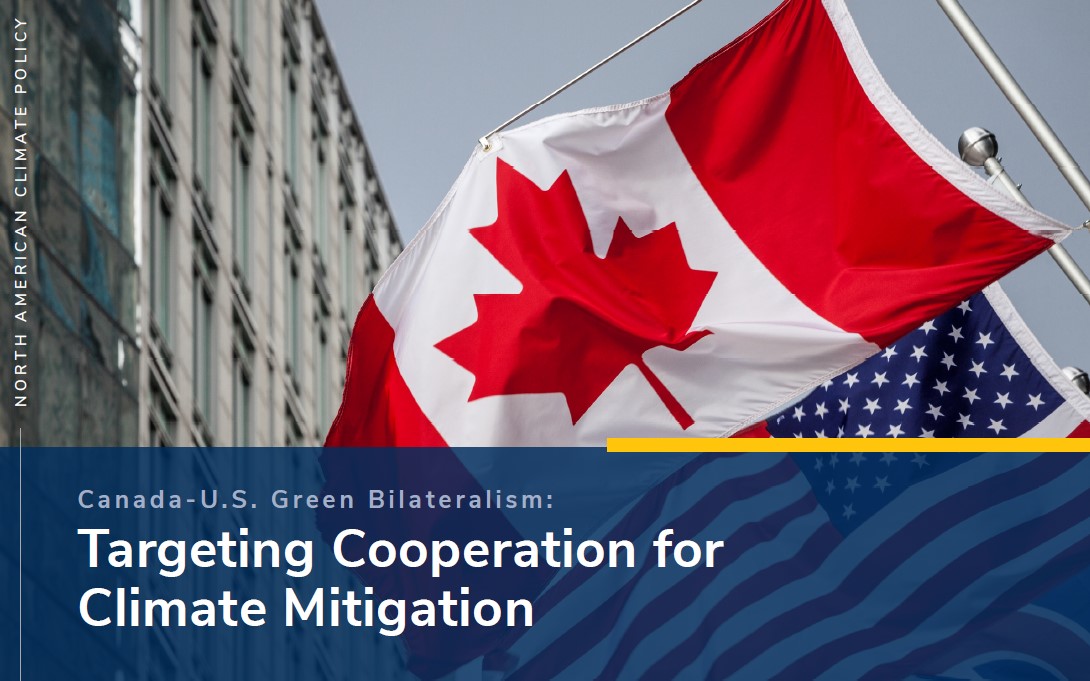This paper is part of the North American Colloquium (NAC), a collaborative venture between the Autonomous National University of Mexico, University of Toronto, and University of Michigan. Established in 2018, the NAC brings together leading academic analysts and practitioners from Mexico, Canada and the United States to address key social and policy issues facing all three countries. Each year, the three partner universities select a theme, and one serves as the host to convene joint activities throughout the year.
Canada-US green bilateralism: Targeting cooperation for climate mitigation
Under the Biden administration and the Trudeau government, the U.S. and Canadian commitment to bilateral cooperation on climate is both strong and comprehensive. This stands in stark contrast to the complete lack of engagement under the previous Trump government and the decidedly uncomfortable Harper/Obama relationship on climate.

Key findings
- Across our chosen policy areas, bilateral cooperation takes place
via a broad array of distinct cooperative channels and structures,
fragmenting continental climate policy efforts. - The architecture supporting bilateral climate cooperation is lightweight and vulnerable to domestic political headwinds.
- It would be difficult to change the bilateral dynamics on issues like black carbon and ground-level ozone pollution, where cooperative structures are entrenched and linked to other environmental problems, i.e., air pollution.
- There are clear economic, political and technological rationales for deepening cooperation across the border for carbon capture and storage technologies, electrified transportation, and methane reductions.
- Canada and the U.S. should consider a “cluster” strategy for pursuing continental vehicle electrification (across vehicle manufacture, battery manufacture and recycling, and charging infrastructure) as the four components need to be built out in an integrated fashion.
